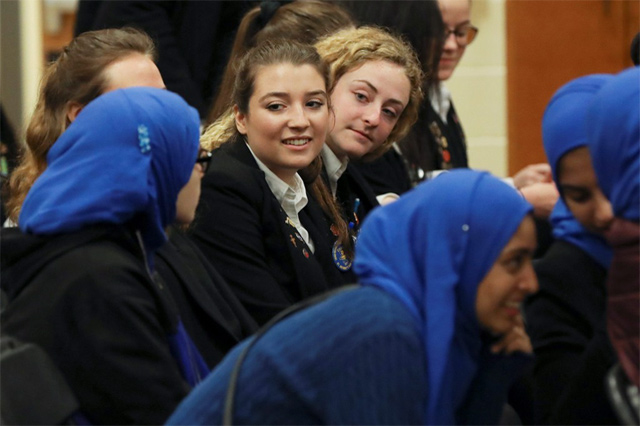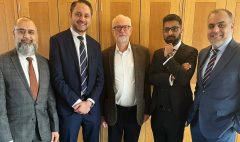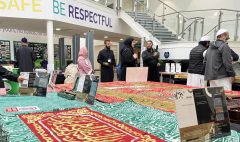To ease fears, U.S. Muslim schools reach out to neighbors
May 12, 2017 2023-07-26 11:56To ease fears, U.S. Muslim schools reach out to neighbors

To ease fears, U.S. Muslim schools reach out to neighbors
Americans are more likely to view Muslims, who make up 1 percent of the U.S. population, as extremists if they do not know one personally, according to a February poll by the Pew Research Center. The same survey found that 60 percent of Americans who know a Muslim believe there is little or no support among them for extremism but only 48 percent of those who do not know a Muslim believe that.
In an effort to overcome that perception, the Council of Islamic Schools in North America, the nation’s only accrediting agency for Muslim schools, is changing its curriculum. It will ask its 78 accredited or member schools, located across 24 U.S. states, to arrange meetings between their own students and those at other, non-Muslim schools. “People in this country, they want to know about Muslims, they want to know what’s going on inside Islamic schools,” said CISNA Director Sufia Azmat.
The Council is asking its educators to launch more volunteer projects outside the Muslim community, attend local government meetings and create a database of alumni to track their graduates’ success. The move comes at a time when Muslims are under intense scrutiny, largely the result of extremist attacks carried out in the name of Islam in the United States and abroad.
A report by the Council on American-Islamic Relations released this month showed a 57 percent spike in the number of anti-Muslim hate crimes recorded in the United States last year compared with 2015. In the 10 days following U.S. Election Day on Nov. 8, physical and verbal attacks against Muslims ticked up 6 percent compared to the same period the prior year, the Southern Poverty Law Center said.
The details of the U.S. Islamic schools’ new curriculum are still being hammered out, but the purpose is clear, CISNA’s Azmat said: “Be open to outsiders.” A recent study of about a third of the nation’s Muslim high schools conducted by the Institute for Advanced Studies in Culture at the University of Virginia found that the students did not vary much from their non-Muslim peers in terms of interests and sense of being American.
Many of the nation’s Islamic schools have kept a low profile since the first school opened in the United States roughly 30 years ago, partly to avoid harassment. The outreach efforts could face similar resistance to those of U.S. public schools that have attempted to teach about Muslims in social studies classes. Some parents in San Diego, California, and Chatham, New Jersey, recently objected to lessons about Muslims.
Continue reading at: Reuters








